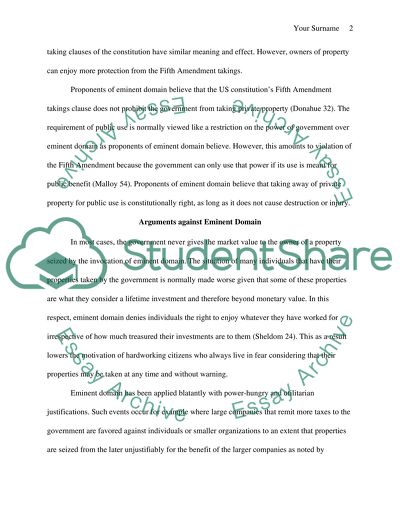Cite this document
(“Is Eminent Domain as Practiced Today a Violation of the Takings Clause Essay”, n.d.)
Retrieved from https://studentshare.org/english/1427049-eminent-domain
Retrieved from https://studentshare.org/english/1427049-eminent-domain
(Is Eminent Domain As Practiced Today a Violation of the Takings Clause Essay)
https://studentshare.org/english/1427049-eminent-domain.
https://studentshare.org/english/1427049-eminent-domain.
“Is Eminent Domain As Practiced Today a Violation of the Takings Clause Essay”, n.d. https://studentshare.org/english/1427049-eminent-domain.


